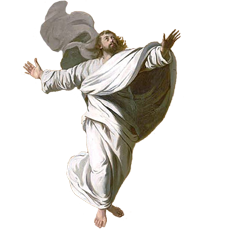Syllabus | Schedule | Tronclass | NRSV Online

The Bible as Literature: The New Testament
Quizzes
Occasionally you will be given an unannounced quiz at the beginning of class or a Tronclass quiz at the end of class
- Beginning of Class Quizzes will cover reading for that class and ideas from the previous week.
- End of Class Quizzes will cover material from the class lecture you just heard.
- Quizzes, encourage you to do the reading and come to class on time and pay attention in class. They also help you to learn and help me to evaluate your understanding
Lecture Notes, Study sheets
- Lecture Outlines for each lecture are available to download from the Tronclass Website.
- Print it out and bring it to class to fill in during the lecture.
- Preview it before class to help you prepare.
- These study sheets are intended to help with understanding the lectures and to prepare for quizzes and exams.
Presentations: Bring a Passage to Life (6-8 min.)
- 2 people per group.
- 6-8 minutes per presentation (FOLLOW THE TIME STRICTLY)
- The Purpose is to bring your story or passage to life for the class
- Present your your passage by acting it out or finding another way to show the feeling of the passage.
- You can act it out, Show a recorded video, Present through a puppet show, PPT, etc.
- Each person should speak equally
- Be creative. Try to capture the idea. You don’t need to always follow the exact words. You can do it like a conversation, a drama, puppet play, etc.
- You can change the setting and time period if you like. For example, you set your story in Taiwan of the 21st Century, but still follow the text as much as possible. Be creative.
- Introduce your presentation before you begin.
- Explain why you performed the way you did and what you want your performance to convey.
- You do not need to create a PPT, but you can if you want to.
- Any use of technology must be set up before class begins so it runs smoothly.
Presentation Critiques
- Each presentation will be critiqued by another group.
- Make sure you check the time carefully, and make a thoughtful evaluation of the presenting group.
- Click here for the critique form.
Papers
- Both papers should be around two-three pages (roughly 500-700 words).
- You do not need to use research or Internet resources, but if you do, you must cite correctly.
- Cite all Bible passages clearly in the text or in parentheses using commonly accepted abbreviations, then chapter and verse.
- For example (Mt 3.15-17), Gal 2.18
- Plagiarism (copying others’ words or ideas without citing the source) results in a grade of zero.
- Late papers are accepted, but they lose 10 points for every week late.
Paper 1: A Depiction of Jesus (around 500 words)
Choose a depiction of Jesus that you like (picture, sculpture, film, song, or piece of art)
- Tell why you like it.
- Connect your depiction of Jesus to one or more passages from the Gospels. Tell how your depiction is connected to that/those passages.
- Include a picture or the lyrics of the depiction you write about.
- Going into detail about why you like it (it’s connection to you or your life) and how it relates to a passage in the Gospels (it’s connection with the Bible) is the key to doing well on this paper.
Paper 2: Interview a NT Character (around 500 words)
Write out an interview between you and one of the following characters. Peter, Stephen, Paul, Cornelius, Philip, Barnabas, Mark, Timothy, Lydia (If you have another idea, ask me first)
- First, tell why you chose this character, and why you focused your interview the way you did.
- Write which passages from the NT this interview relates to.
- Stick to what this character might really say as he/she is shown in the Bible. This means you want to try to get into the head of this character by reading and understanding as much as you can about him or her.
- Questions must relate to situation found in the New Testament that this person would be familiar with.
- The Interview must focus on events after Jesus’ ascension.
More depth is better. As with paper 1, the key to doing well is to include more depth and detail about both your own situation and what is said in the bible.
Exams
- For both midterm and final, you will need to know important characters and events. You will also be given passages, and you must explain the context and significance.
- The midterm will focus on Jesus and the Gospels, especially how each one is unique.
- The final will focus on the early church, especially problems and questions related to its growth, and different ways the ideas of Jesus are interpreted.